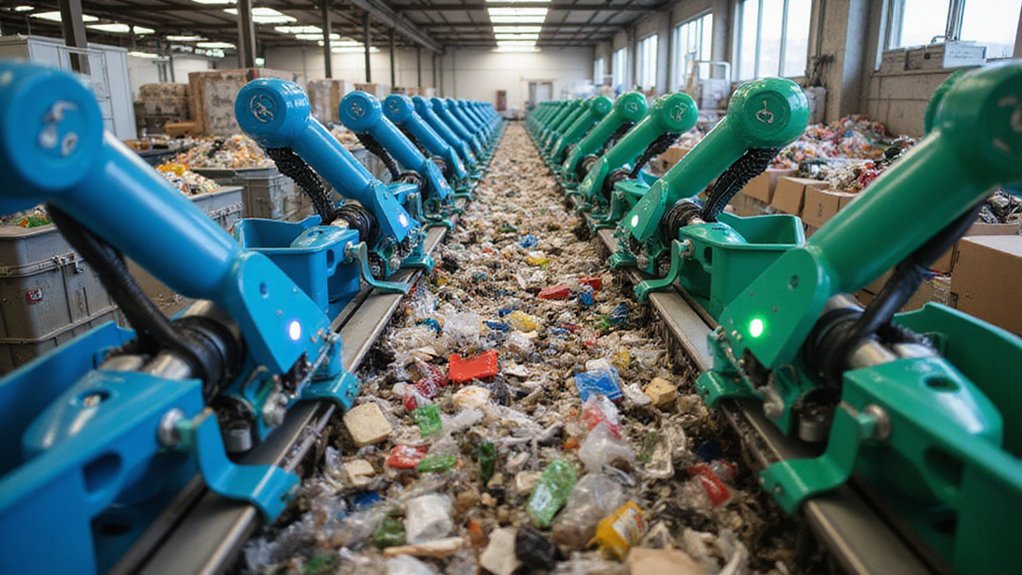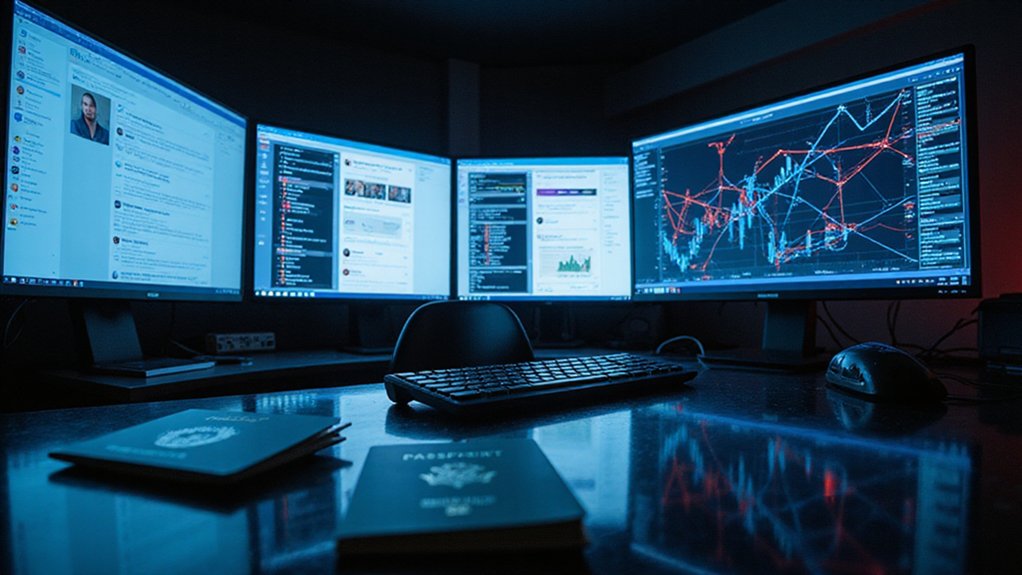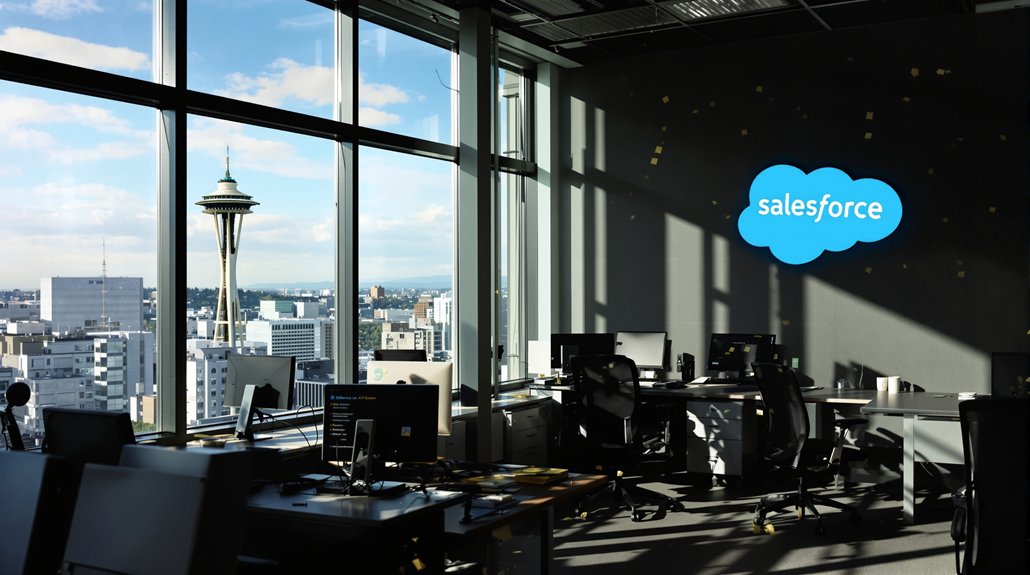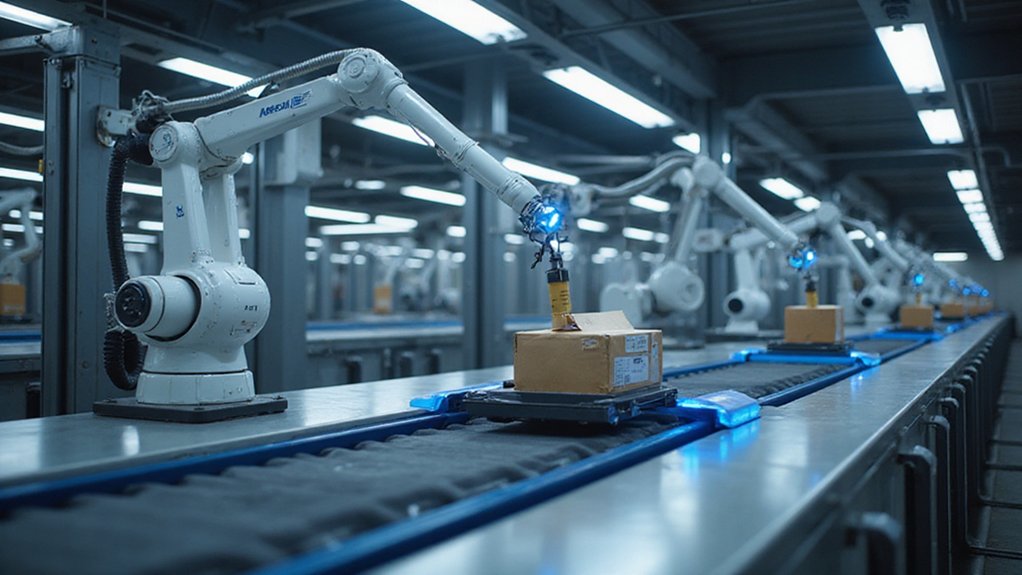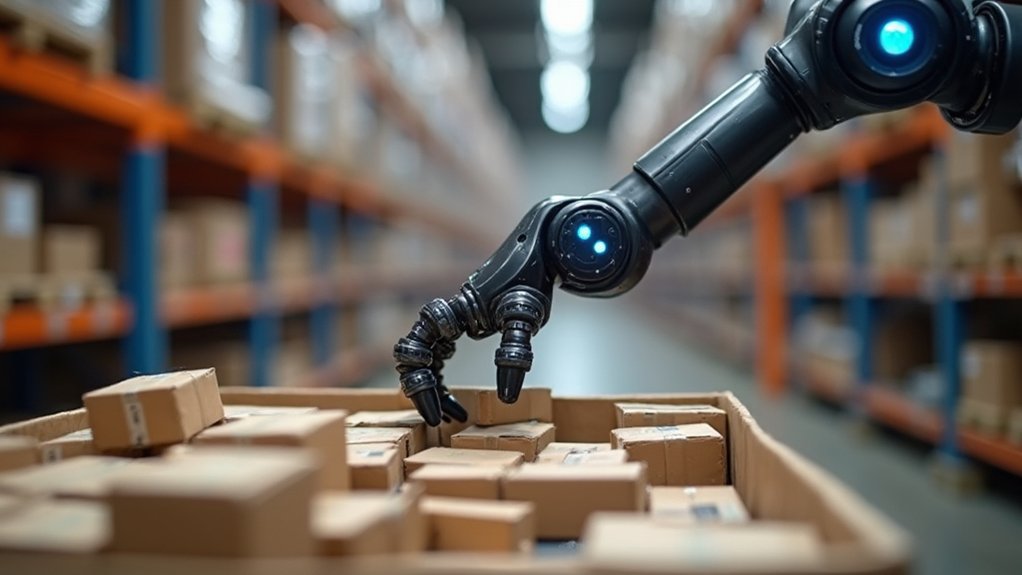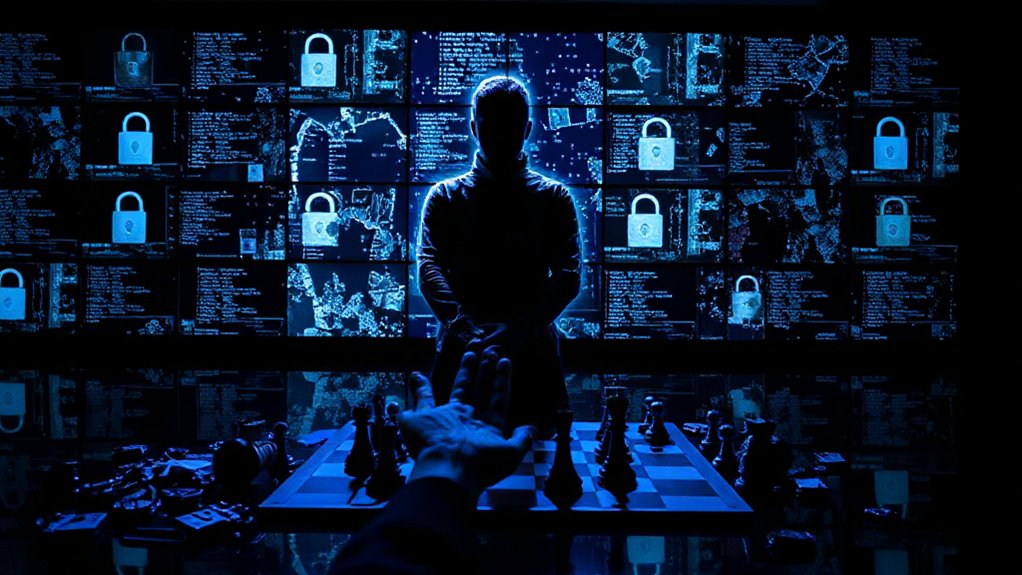Seattle’s waste management system is evolving with Amazon-backed AI recycling robots that can sort materials twice as fast as humans. This technology supports the city’s Strategic Business Plan for 2025-2030, which focuses on food waste reduction and landfill diversion. The innovation aligns with Washington’s Recycling Reform Act and Seattle’s “Moving Upstream to Zero Waste” initiative. These advancements could greatly improve the state’s current 40% residential recycling rate.
As Washington state confronts growing environmental challenges, Seattle is leading the way with bold new waste management strategies. The city recently disclosed its Strategic Business Plan for 2025-2030, focusing on food waste reduction and preventing waste from ending up in landfills. This plan builds on Seattle’s commitment to sustainability and circular economy principles.
Seattle Public Utilities (SPU) manages the city’s solid waste services through its Solid Waste Fund. Residential customers get bills directly from SPU, while businesses work with collection contractors. These contractors gather garbage, recyclables, and organic materials from properties across Seattle, ensuring proper processing. Currently, the state’s residential recycling rate sits at just 40%, highlighting the need for these innovative approaches.
The city’s waste transformation got a major boost with the passage of the Recycling Reform Act (SB 5284) in 2025. This law creates a producer responsibility system that requires packaging producers to fund Washington’s recycling infrastructure. It’s a significant shift in how recycling costs are handled in the state.
Seattle’s innovations extend beyond policy. The city completed the Ship Canal Water Quality Project, featuring a 2.7-mile tunnel that can store 30 million gallons to manage climate impacts on stormwater. This award-winning project demonstrates Seattle’s commitment to adapting infrastructure to environmental challenges.
The University of Washington is partnering in these efforts with its own sustainability goals. UW aims to reduce solid waste by 10% by 2025 through building-wide conversions to single-stream recycling, improved signage, and expanded composting programs. The university’s waste metrics reveal that 19% of landfilled waste is actually compostable paper that could be diverted through their expanded infrastructure initiatives.
Seattle’s “Moving Upstream to Zero Waste” plan takes a holistic approach, addressing the entire lifecycle of materials rather than just end-of-pipe solutions. The Reuse Seattle initiative promotes reusable food service ware to reduce single-use products, while building material reclamation programs strengthen the local circular economy. These efforts align with global trends showing renewables are expected to meet 95% of electricity demand growth through 2027.
Through these coordinated efforts, Seattle isn’t just managing waste—it’s transforming how the city thinks about resources, setting an example for cities nationwide facing similar environmental challenges.
References
- https://seattle.gov/documents/Departments/SPU/AboutUs/SBP/2025-2030/SPU_2025-2030_Strategic-Business-Plan-Update.pdf
- https://www.seattle.gov/documents/Departments/SPU/Services/Rates/2023-2025_SolidWaste-RateStudy.pdf
- https://senatedemocrats.wa.gov/lovelett/2025/04/15/house-approves-plan-to-modernize-states-recycling-system/
- https://www.axios.com/local/seattle/2025/04/01/washington-state-bill-recycling-reform
- https://sustainability.uw.edu/sustainability-plan/target-ix-10-less-solid-waste-2025
